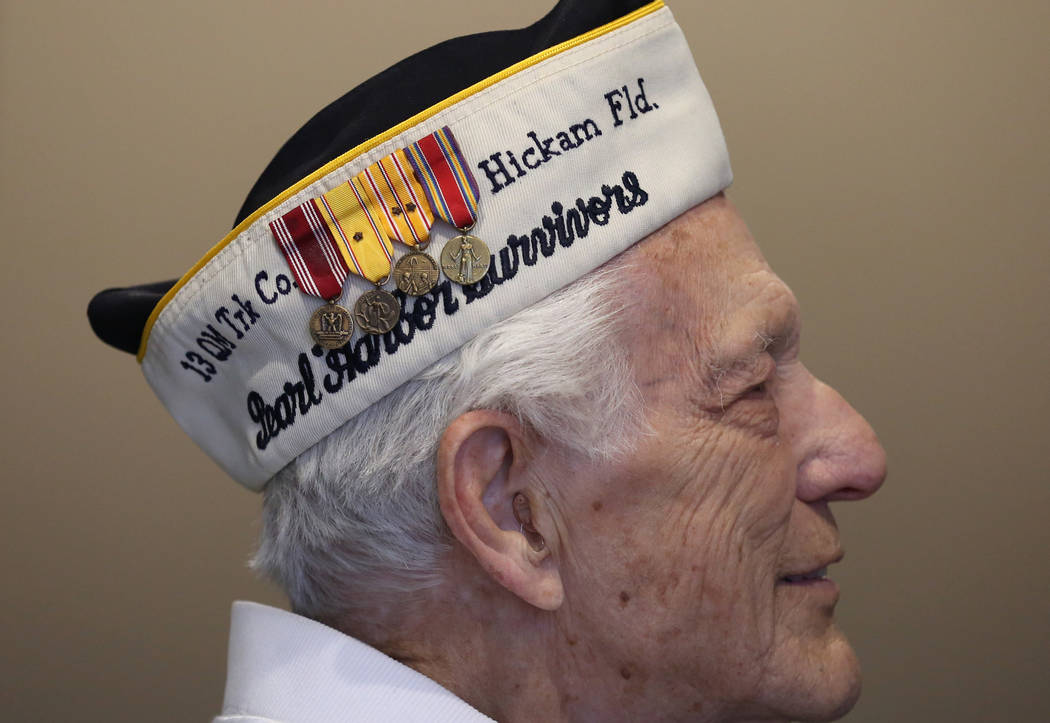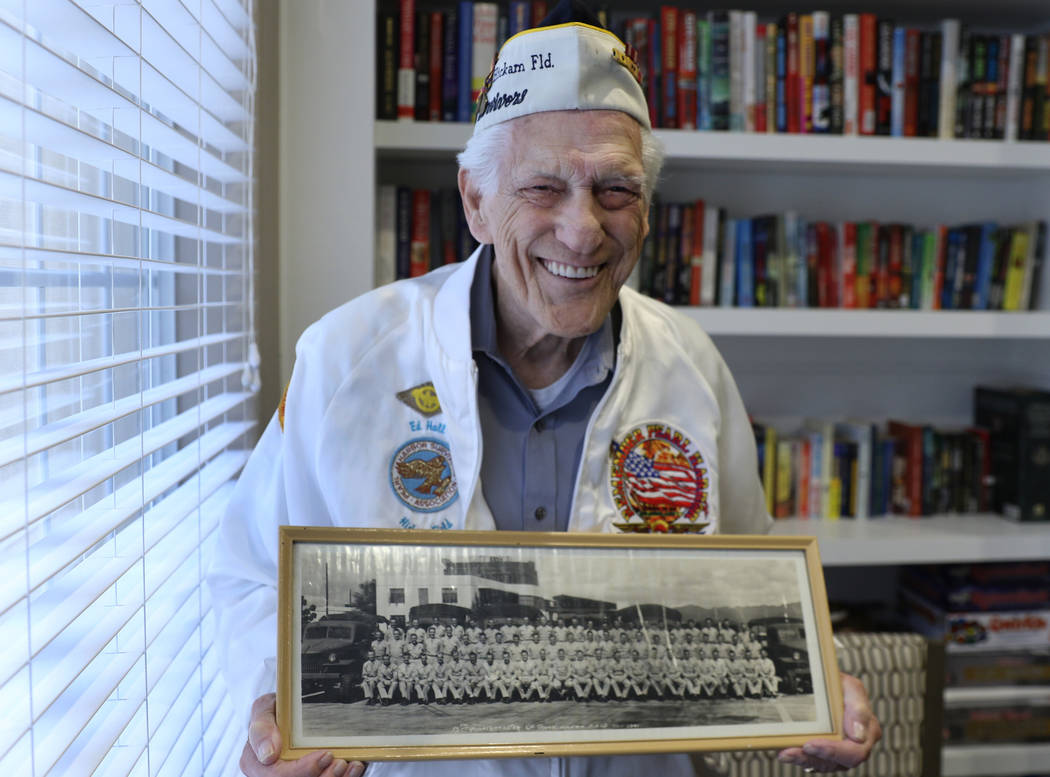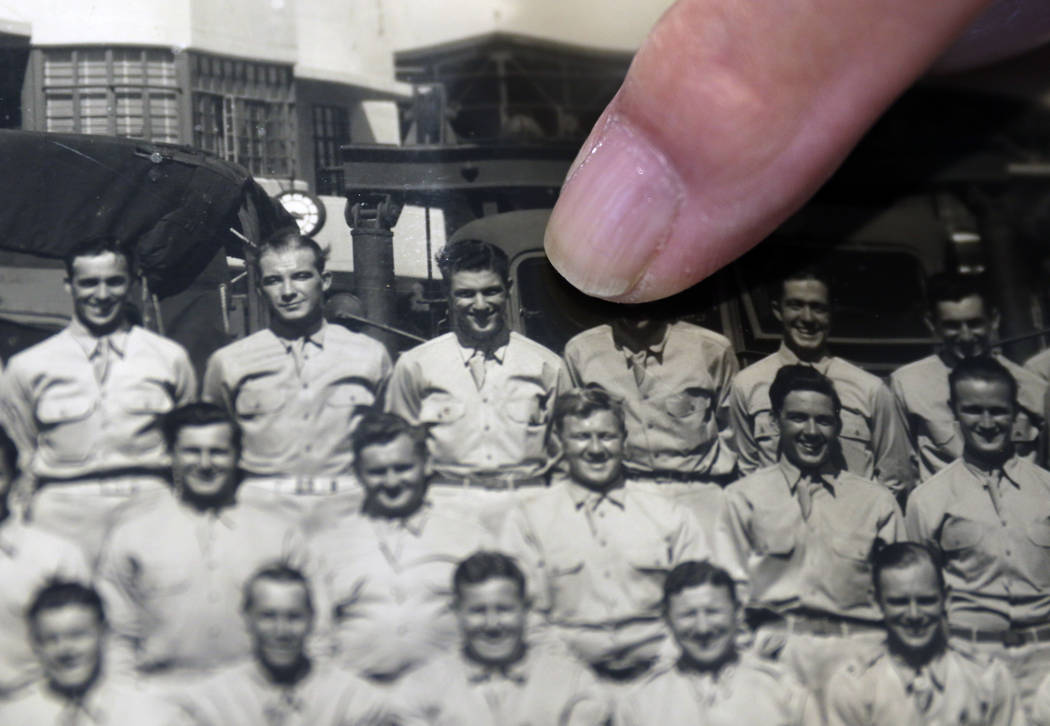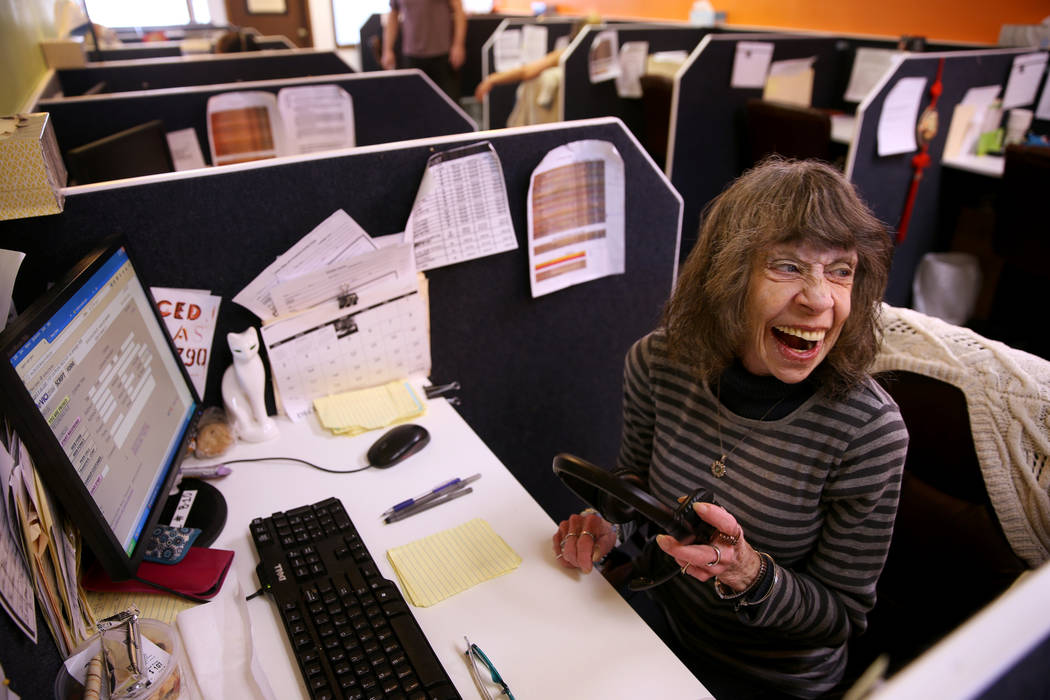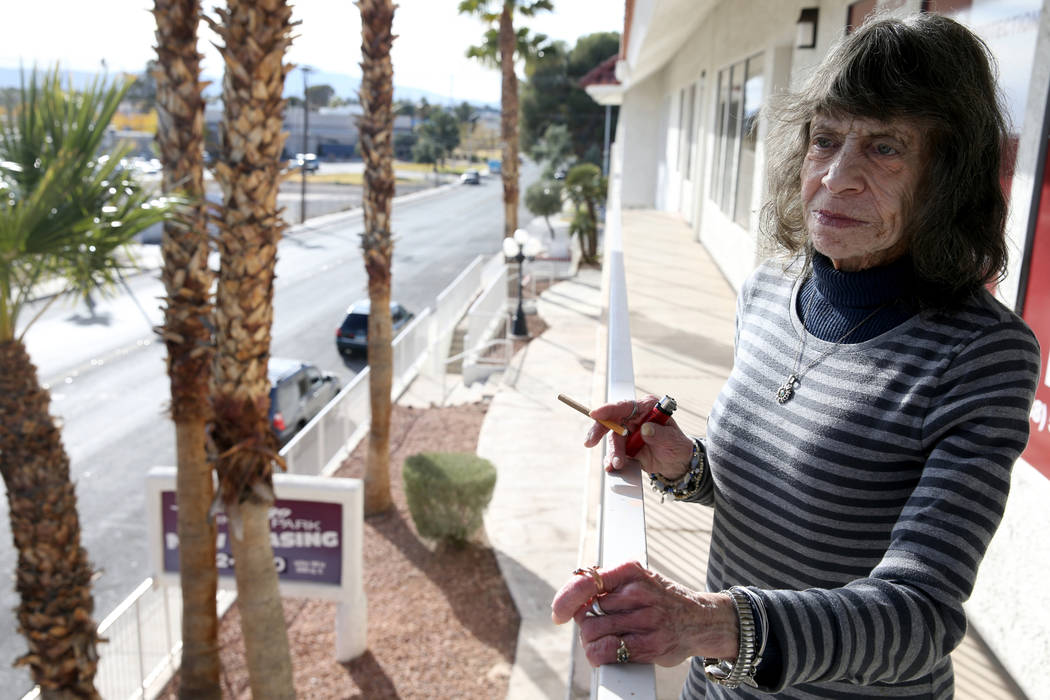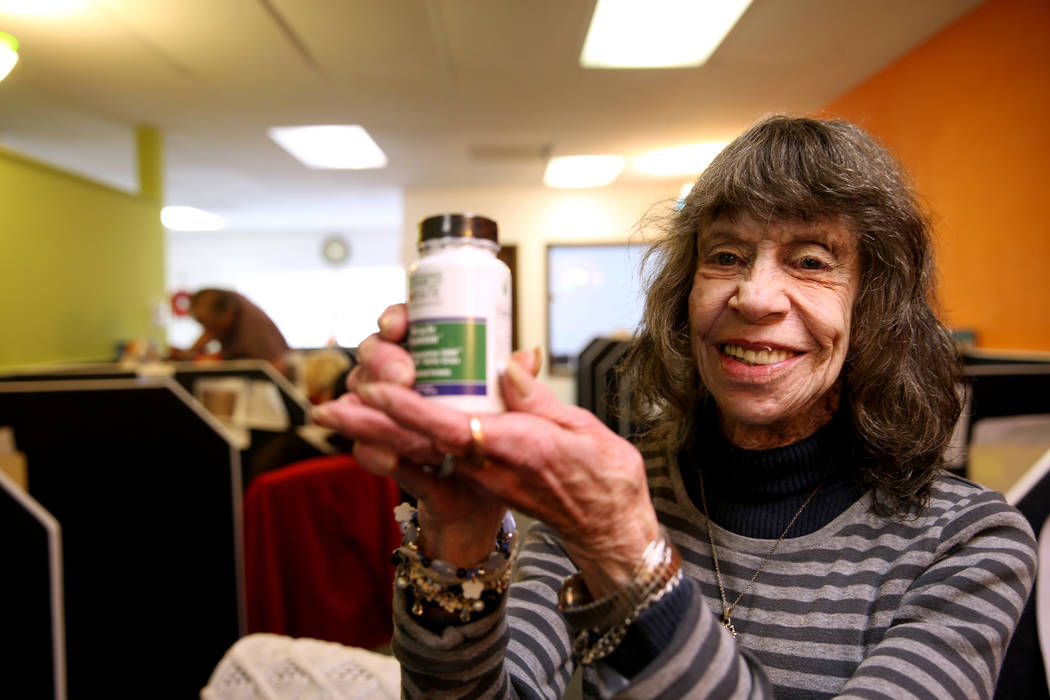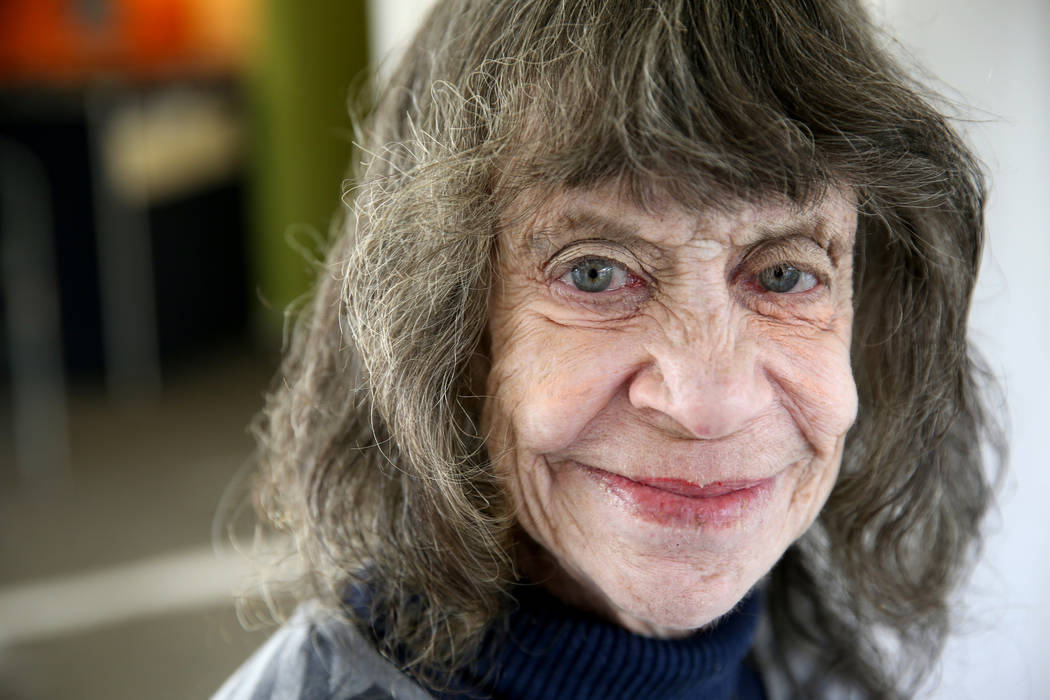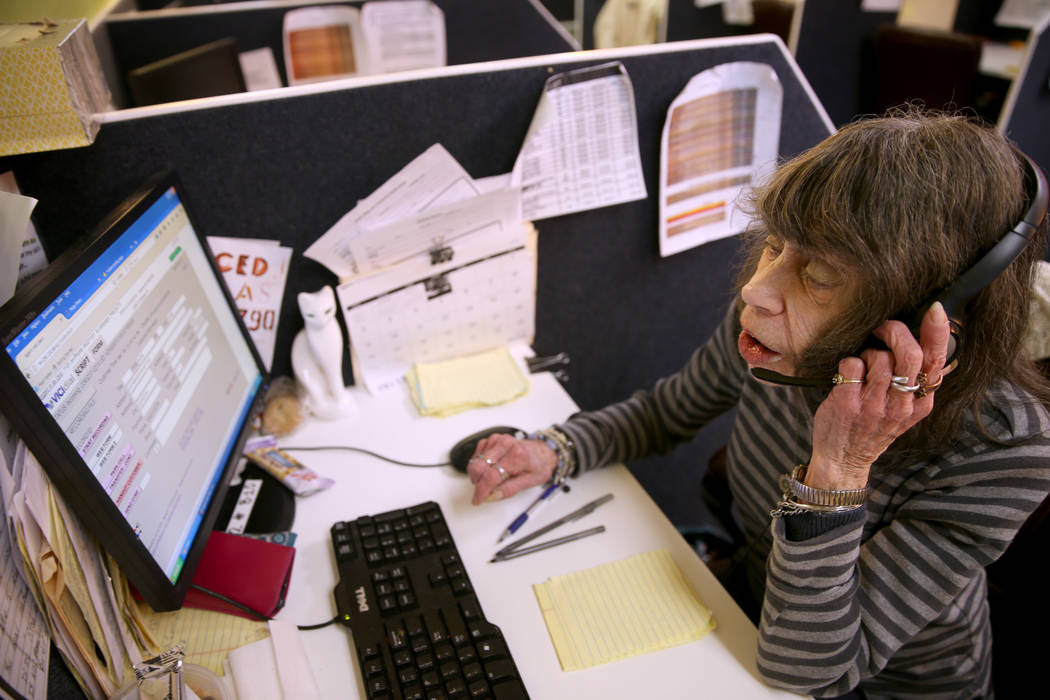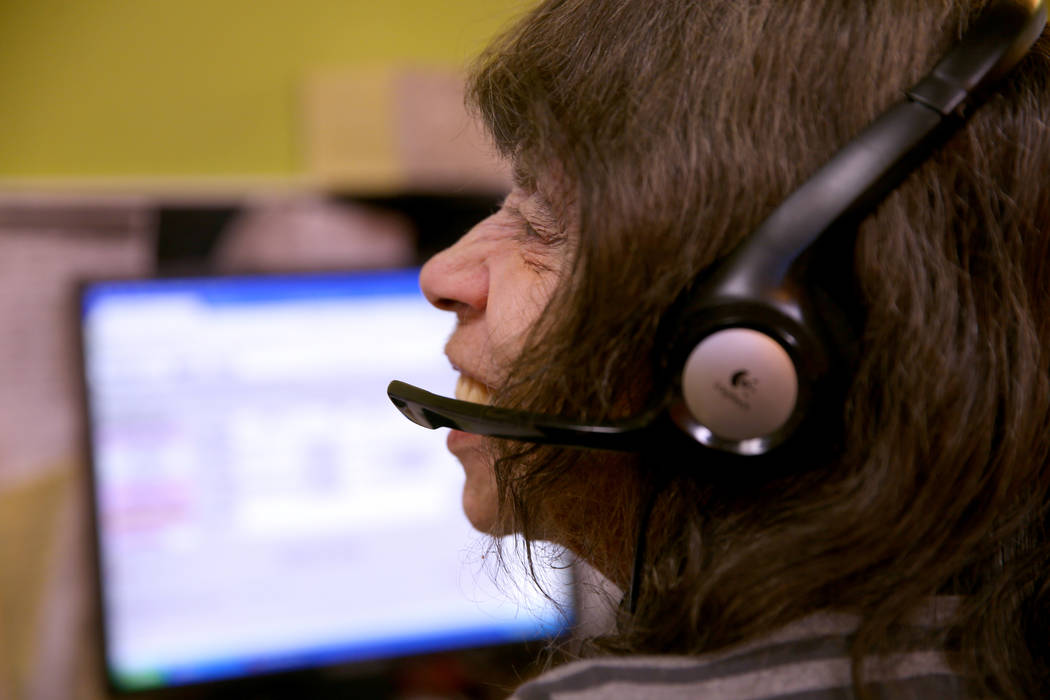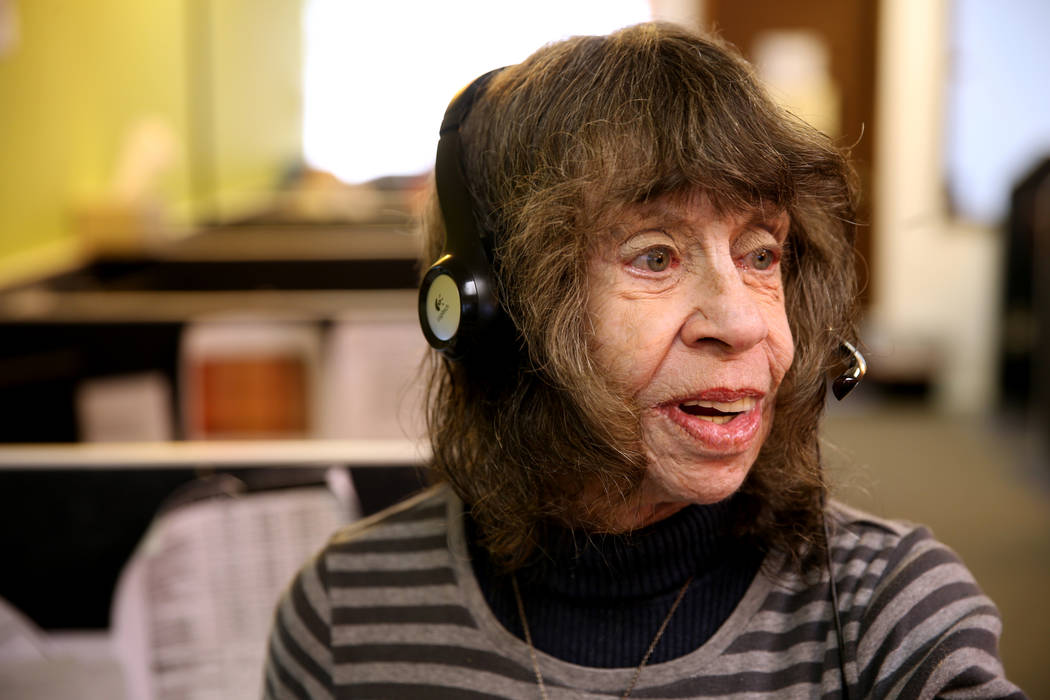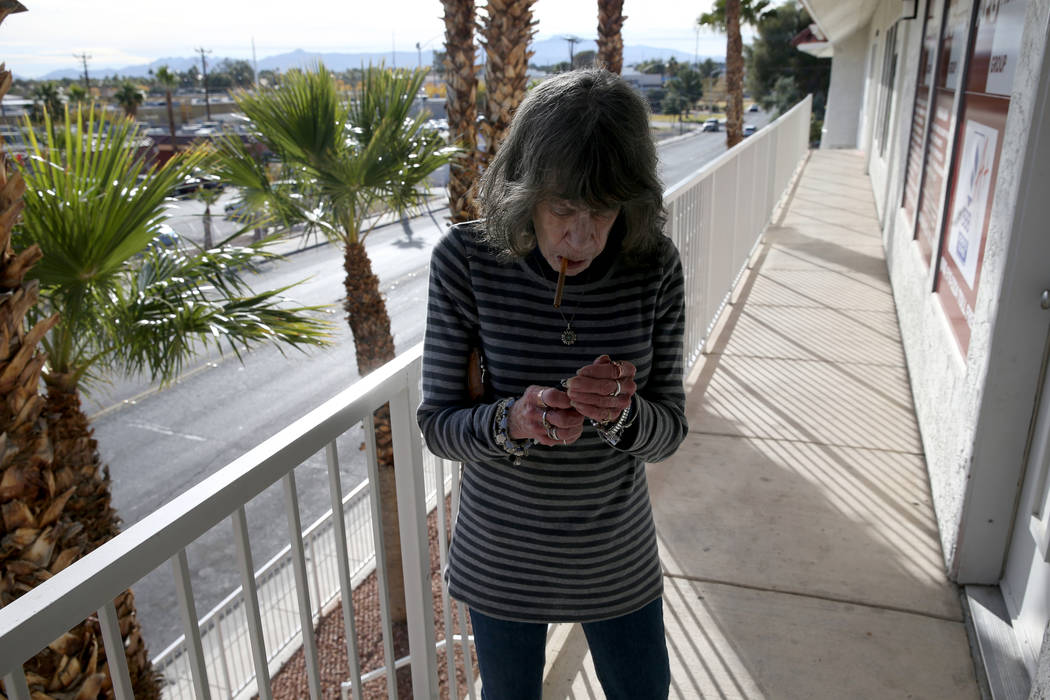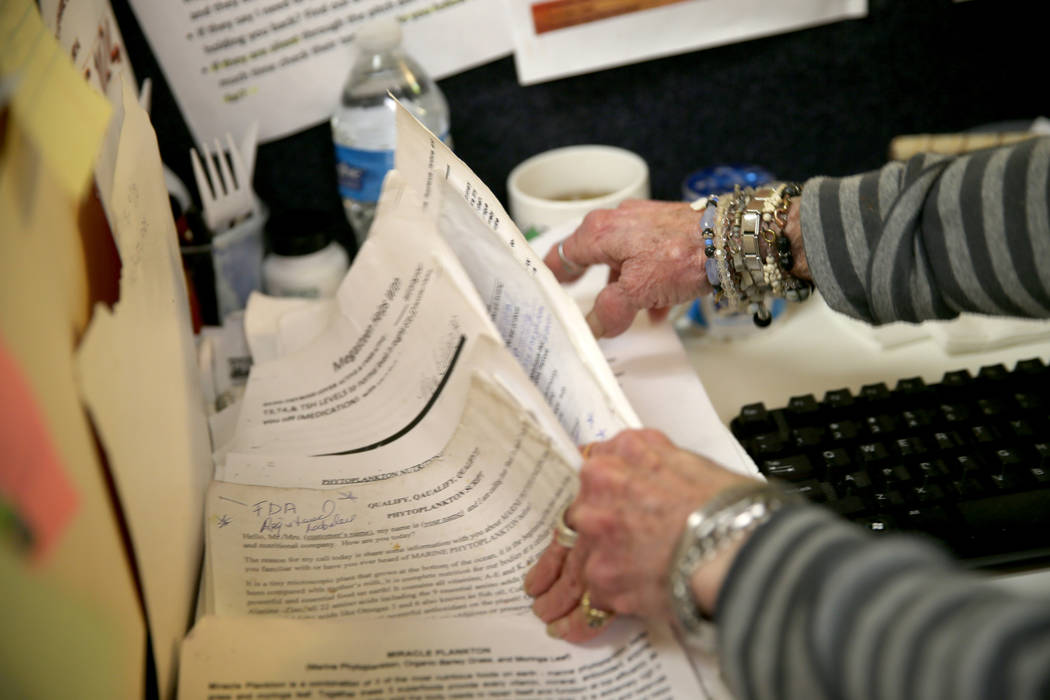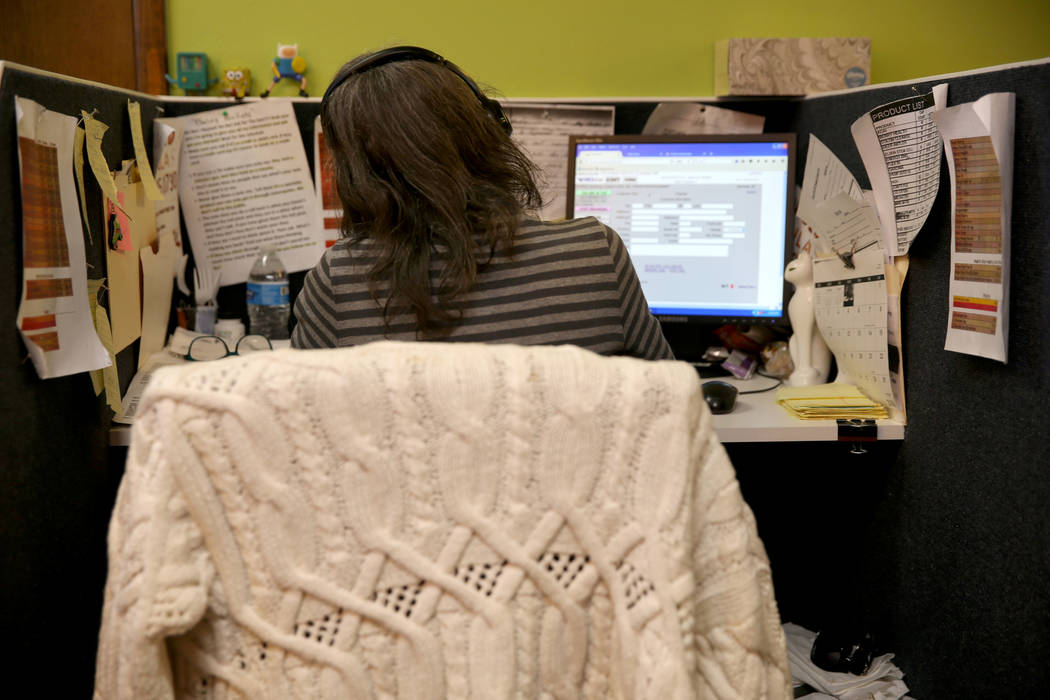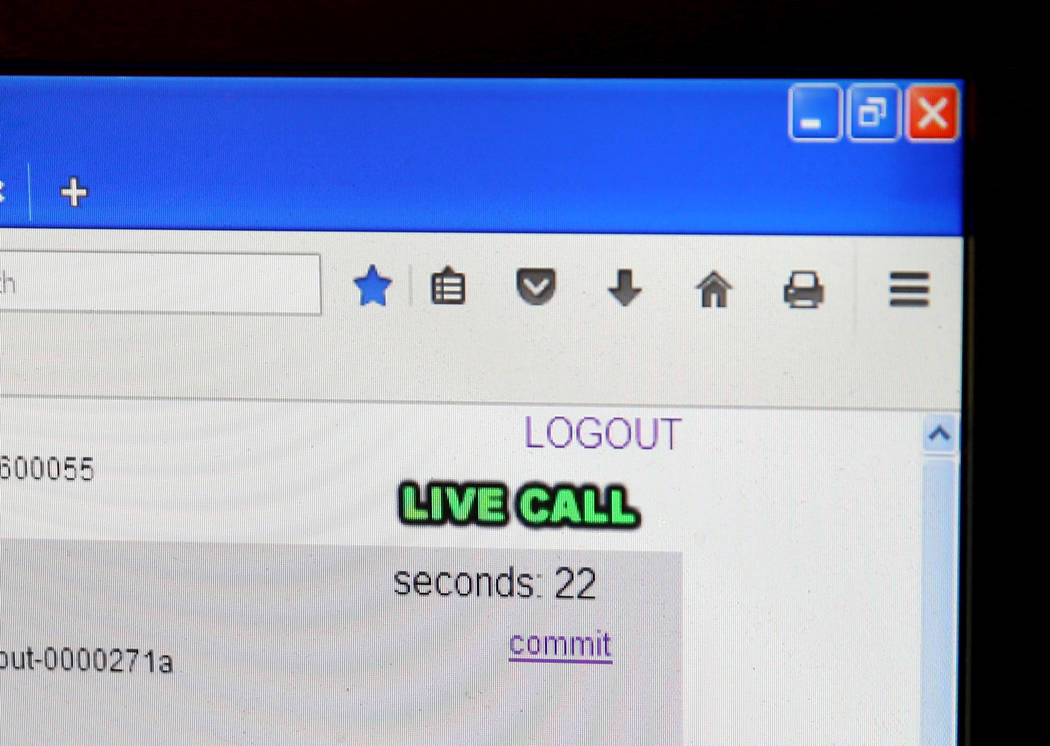Las Vegas residents keep Pearl Harbor attack alive in their own ways
Las Vegas residents Edward Hall and Winifred Kamen share a connection to the “day of infamy” when Japan launched a surprise attack on U.S. forces at Pearl Harbor on Dec. 7, 1941.
One has no memory of the attack that left 2,403 Americans dead, including 68 civilians, while the other will never forget.
Hall, 95, was a fresh-faced 18-year-old private first class in the U.S. Army Air Corps, working on kitchen duty when he heard a loud thud that he thought might be a malfunctioning air compresser.
He stepped outside the mess hall and took in a scene of unimaginable chaos as explosions and flames erupted around him under skies full of Japanese Zeroes.
Kamen, 77, was just 4 months old when her mom swaddled her in blankets and hid her in a linen closet to protect her from the bullets that were raining down on the barracks where they were living.
Everything she knows of the attack was handed down to her by her mother. Her father, an Air Force lieutenant colonel, didn’t ever talk about the attack and was often deployed after he and her mother divorced.
With the number of living Pearl Harbor veterans dwindling — Hall is believed to be one of just a handful in the Las Vegas area — the time is approaching when succeeding generations will no longer be able to hear firsthand accounts of that fateful day that dragged the U.S. into World War II.
And that concerns Hall and other veterans who still stand by President Franklin Roosevelt’s words: “May we never forget.”
‘Do you want to die?’
Hall remembers working in the mess hall at Hickam Air Force Base, cleaning a frying pan, when he heard a thump outside.
When he stepped out the door, he saw debris flying. Then a nearby hangar blew up, sending men fleeing.
“What the hell’s going on?” he remembers shouting at one of them as he became aware there were dozens of airplanes flying overhead.
The man pulled him under the eave of a barracks, shouting, “Do you want to die?”
“There was shooting going on like you wouldn’t believe,” Hall said of the moment he realized they were under attack. “I’m still amazed I didn’t get hurt.”
One low-flying plane shot 2 inches off the roofing Hall and his comrade were crouching under. In the distance, he heard a loud explosion and saw a dark cloud, which he later learned was the USS Arizona being struck. It quickly sank, killing 1,177 sailors and Marines.
“She’ll never be decommissioned,” he said thoughtfully of the ship that is now a maritime memorial. “Her crew is still aboard.”
After gathering his wits, Hall jumped into a pickup and began driving around the base, resolving to save as many of the wounded as he could.
For hours, he drove two to three people to the hospital at a time. On one trip out to pick up more survivors, a stream of bullets tore through the cab, shattering the windshield but miraculously missing him and the medic who had joined him and was in the passenger seat.
On two flat tires, Hall drove back to the motor pool to change them out.
At one point, Hall stopped to check on a number of downed Americans. When he rolled one over to check his pulse, the man’s intestines spilled out. Hall grabbed the man’s .45 automatic pistol and strapped it on his waist. He needed a weapon.
Though he didn’t fire it that day, he kept it.
Carried into hills
On the morning of Dec. 7, 1941, Kamen’s mother and father were sleeping at their home at the Schofield Barracks on what was then Wheeler Air Force Field.
There had been an officers’ party the night before, so her parents were sleeping in when the explosion woke them. Kamen’s mother placed her 4-month-old in a closet, wrapped in blankets, as the bombs went off.
Bullets riddled the family’s car and shattered glass baby bottles drying on the window sill.
Kamen’s father, Lt. Col. Wallace Bloom, rushed out of the home.
Her mother, Audrey Wellerson, filled a pillow case with baby formula, food and diapers and then carried her baby into the hills, where other women and children fled to hide from the gunfire.
Within days, they took a boat to San Francisco. They later moved in with family in Manhattan Beach, New York.
The years since haven’t all been kind to Kamen, who still works to supplement her monthly Social Security check of $1,072.
“We survived, but I’m having trouble surviving 77,” she said.
The 5-foot, 96-pound woman beat breast cancer 13 years ago and has been dedicated to healthy living ever since. No beef. No pork. No prescription medicines. No carbonated drinks. Just water, apple juice and cranberry juice.
As a telemarketer for Advanced Health, she tries to sell customers other natural remedies, such as Miracle Plankton or CBD oils.
She could live without her half a pack of Seneca filtered cigars a day, “but why should I?”
Friends lost
After the attack on Pearl Harbor, Hall lived off hardtack crackers, chocolate bars and water.
He said he didn’t sleep for four days, other than the catnaps he took in his truck as he and fellow service members slowly began to clean up the battered base.
On the 50th anniversary of the attack, Hall returned to Hickam Air Force Base and saw the names of three friends he lost in the attack on a memorial.
“Of course, the ol’ eyes welled up,” he said. “It was all I could do to keep the tears from flowing down my cheeks.”
He holds up a photo taken just one month before the attack showing the 13th Quartermaster truck company to which he was assigned.
Hall, who joined the military at 16 by lying about his age, is the youngest one in the photo, a bushy-haired brunette with a big smile.
“There was a day I was part of history,” he says now. “You really can’t describe what you saw that day. It’s almost indescribable.”
‘I’m stronger’
For Kamen, who was just 4 months old, the attack taught her about sacrifice and vitality.
“I’m stronger. My mom was stronger,” she said. “If you can handle the bombing, you can handle anything.”
And knowing she survived the attack means she feels a responsibility to pass the story on, even if she has no direct memory of it.
“It’s a part of our life,” she aid. “If I hadn’t survived, I wouldn’t have been here. I wouldn’t have my three kids, six grandchildren and a great-grandchild.”
Hall, who will be honored Friday morning at a private Pearl Harbor remembrance ceremony at Nellis Air Force Base, said he wants his story to outlive him.
“They ought to learn from the mistakes made,” he said, referring to the warning signs that could have prepared the U.S. for the attack.
“We need to pay attention to the security of this country, observe what’s going on and pay attention to the possibilities of another World War III.”
Contact Briana Erickson at berickson@reviewjournal.com or 702-387-5244. Follow @brianarerick on Twitter.



